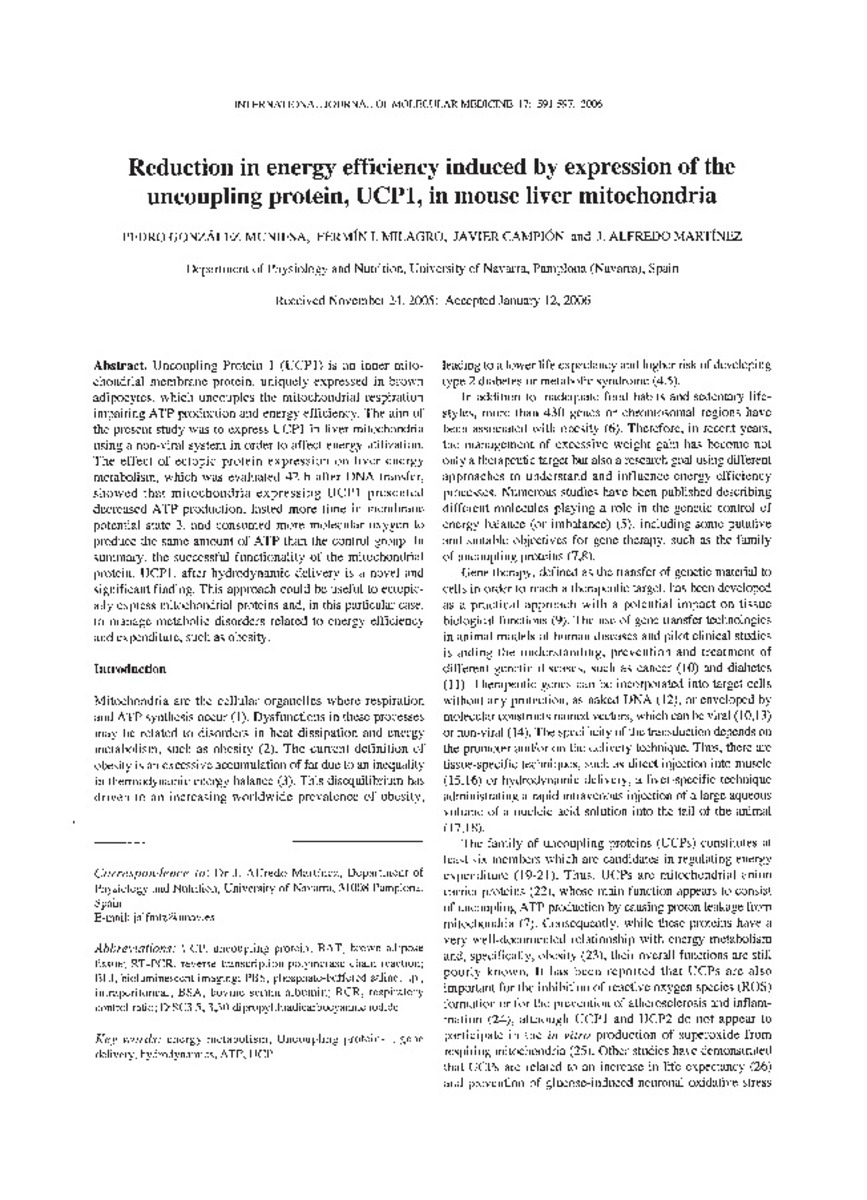Reduction in energy efficiency induced by expression of the uncoupling protein, UCPl, in mouse liver mitochondria
Keywords:
Energy metabolism
Gene delivery
Uncoupling protein - 1
Hydrodynamics
ATP
UCP
Publisher:
Spandidos Publications
Citation:
González-Muniesa P, Milagro FI, Campión J, Martínez JA. Reduction in energy efficiency induced by expression of the uncoupling protein, UCPl, in mouse liver mitochondria. Int J Mol Med. 2006 Apr;17(4):591-597
Statistics and impact
0 citas en

Items in Dadun are protected by copyright, with all rights reserved, unless otherwise indicated.







